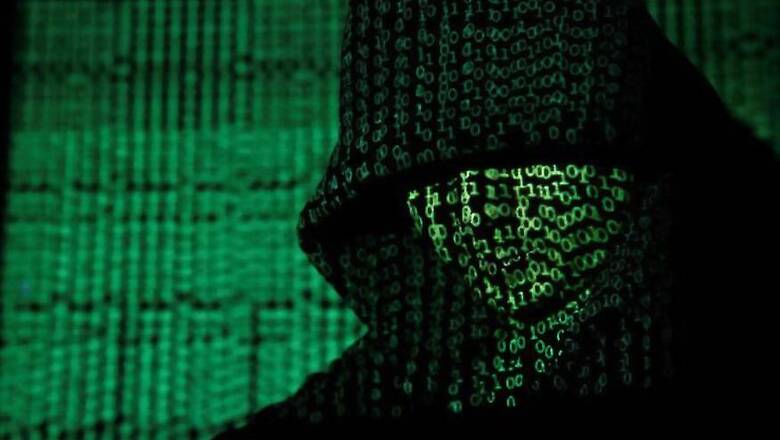
views
One of the most notable milestones of the last few decades has been the democratisation of knowledge and the ability to freely air individual opinions. The shift in society from an industry-based economy to an information-based economy was one of unprecedented pace and proliferation, transforming every facet of our lives.
Social media has completely changed the manner in which we interact with each other. Our ability to stay in continual contact is a great source of comfort and joy. Distances and borders have all but disappeared online. However, it is a truism that for every positive there is also a negative. Facebook, WhatsApp and Instagram together have 4.7 billion users. Their combined voices can sow divisions in society, create echo chambers of hate and even trigger rebellion. The clearest example of this was the Arab Spring that brought down governments in Tunisia, Egypt, Yemen and Libya.
Obviously, the Indian military has not remained untouched by these trends. As social media proliferated, the first and most obvious challenge to the military emerged in the field of information security. Facebook posts by uniformed persons inadvertently revealed personal identification, locations of units and other classified details. However, this issue was relatively easy to handle with restrictions being imposed on the type of information that could be posted on social media.
A greater challenge lay in the use of social media as a weaponised platform. Terror groups exploited this for spreading their ideology and attracting recruits, while the regular armed forces focused on perception management through information warfare. The Russian army terms these actions as ‘information-psychological’, underscoring the close link between information and its psychological impact. Tackling this threat requires a well-thought-out strategy to shield the rank and file of the military from the adverse effects of misinformation.
In most of our military discussions on the impact of social media, there is a clearly defined enemy, and our counter-strategy is based on neutralising the dangers posed by him. However, even as social media continues to evolve, there are many more aspects of this field that need to be studied and debated. One of these areas is the impact of domestic social media on the military leadership.
Today, the individual has acquired a very strong voice on social media. People do not have to take to the streets to express their opinion. They can do it from the comfort of their homes, with a few clicks on their smartphone. Right or wrong, if an opinion gathers sufficient ratification on the internet, it could become extremely difficult to ignore. Will this public opinion of armchair strategists impact how military decisions are made in the future? The answer to this question lies in studying the challenges that would confront the military leadership in the Twitter age.
The first challenge would be in the planning and developing of long-term strategies. Each time there is an incident like an attack on a military base, it is magnified on the internet. Following the Uri attack in September 2016, there was enormous anger on social media with some people even calling for a nuclear war on Pakistan. The burden on the military leadership to show instant resolve sometimes becomes almost too heavy to bear. Responses are, therefore, crafted to deal with the immediate aftermath of the incident.
The same thought process could be repeated as we move from one incident to another. Looking for an early solution to deflect anger on the social media, there would be little time for a military leader to think of long-term future solutions that require a complete divorce from the present and a deep introspection into the future.
Decision-making will become more and more complicated. The dilemma that will face the military leader is whether decisions should be made for visibility in the public space or for strategic impact. It could be easier to put out information and videos of some tactical action on the social media rather than take the longer route to a well-reasoned response. The professional officer will baulk at the easier path, but the lure of this route cannot be easily dismissed.
As Henry Kissinger writes in his book, World Order, “The temptation to cater to the demands of the digitally reflected multitude may override the judgment required to chart a complex course in harmony with long-term purposes. The distinction between information, knowledge, and wisdom is weakened.”
Finally, domestic politics will increasingly intrude in military life. Politicians are extremely sensitive to social media trends. Approbation is a daily need and social media is the instrument that conveys this sentiment. It will require a very strong political leader to buck the trend of online emotions. And the military, which has a strong emotional connect with the people of the country, will be increasingly brought into the political discourse.
This is the reality that the military leadership will have to face, irrespective of which political party is in power. For a military that has assiduously kept itself away from politics, this will be a new test. Military leaders will have to carefully weigh the impact of short-term political objectives on long-term strategy and, more importantly, the effect of infusion of politics on the basic character and ethos of the Indian military.
Churchill said, “Never give in, except to convictions of honour and good sense."
In an age where post-truth is a reality, it may be extremely difficult to arrive at a commonly accepted definition of honour and good sense that is accepted by all netizens. These are testing times and will require a future military leadership that promotes strategic thinking and is willing to chart a path that is not completely paved by digital mass appeal.
(The author is former Northern Commander, Indian Army, under whose leadership India carried out surgical strikes against Pakistan in 2016. Views are personal.)




















Comments
0 comment